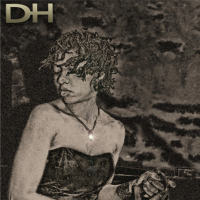Home » Jazz Musicians » Sam Cooke
Sam Cooke
After years as the reigning voice in gospel music, Sam Cooke burst onto the pop scene with the 1957 release of his million-selling single, “You Send Me.” The song's innovative blend of Gospel, Pop, and R&B earned him the title of "The Man Who Invented Soul.” In addition to being an accomplished singer, songwriter and producer, Sam Cooke is remembered as the first artist to take a political stand and refuse to sing to segregated audiences. He also recognized the politics of the music industry early in life. At a time when record labels often left even the most talented and successful artist broke and penniless, Sam Cooke was one of the first artists, black or white, to buck the system and demand ownership of his career. He signed an unprecedented deal with RCA in 1960 after coming to the agreement they let him retain control of the copyrights to his music. Sam Cooke was one of the first artists to capitalize on the crossover appeal of popular music by intentionally recording songs that targeted both the black and white markets. He was the first African-American artist to own a record label, and he established his own management company and music publishing company as well. Even more remarkable, he did all of these things before his 34th birthday. Overshadowing his photogenic smile and business acumen, however, were Cooke's distinctive tenor and his unique, shivery way of hitting the high notes; this style would later become a trademark of soul singers like Otis Redding and Al Green, but it was something he had perfected ages ago when singing lead in a gospel quartet that sometimes pitched their harmonies too high by habit. It was this borrowing from one African American musical genre to help create another that added to Cooke's achievement, and made his untimely death all the more tragic. Cooke was born January 22, 1931, in Clarksdale, the heart of Mississippi's Delta country. His father, Charles Cook Sr. (the "e" was added later by his son) was a Pentecostal minister who also worked as a domestic servant. When economic repercussions from the Great Depression worsened the already-hardscrabble life in the Delta region, Charles Cook moved to Chicago and found work there as an assistant pastor, and soon sent for his family. Cooke began singing in the church choir at age six. By the time he was in his teens, he and his siblings had formed a singing group that was actually earning them pocket money.
Read moreTags
Sam Cooke: Legend

by Doug Collette
Sam Cooke Legend Abkco 2021 With a running time of seventy minutes, the documentary on singer/composer/producer Sam Cooke is far shorter than the bonus material included on the DVD of Legend. But in its own way, that's fitting as the late r&b/soul icon's lasting influence, based on his varied career as an artist, entrepreneur and civil rights activist, far outstrips the actual duration of his life. Sam Cooke's greatest ambition was also his greatest achievement, ...
Continue ReadingThe Legacy of Sam Cooke

Source:
JazzWax by Marc Myers
Earlier this week, I wrote an essay for The Wall Street Journal (go here) on the life and legacy of Sam Cooke 50 years after his shooting death in Los Angeles on December 11, 1964. Though remembered mostly for his hits, Cooke has been largely forgotten for many of his other accomplishments. In a nutshell... Cooke had 43 hits on Billboard's pop chart over 10 years (1957-66), including several two years after his death. Seventeen of those hits were in ...
read more
TV Review: "Sam Cooke: Crossing over" American Masters (PBS)

Source:
Pop Dose
Maybe its because Ive read Peter Guralnicks comprehensive 2005 Sam Cooke biography Dream Boogie: The Triumph of Sam Cooke that the newest entry in the generally wonderful PBS series American Masters, Sam Cooke Crossing Over, which debuts on PBS tonight, seems a little bit skimpy to me. An hour simply is not enough to tell the story of one of Americas greatest musical lives.
The basic facts of Sam Cookes life are by now pretty well known. His father was ...
read more
Les Paul (Mon) Mingus Legacy (Tues) Wed. Oct. 4 Terry Waldo 7:30pm + Eugene Fleming Tribute to Sam Cooke 9:30pm & 11pm, Oct. 5-8 Gato Barbieri at The Iridium Jazz Club

Source:
Jim Eigo, Jazz Promo Services
IRIDIUM JAZZ CLUB 1650 BROADWAY (Corner of 51st) NEW YORK, NY 10023 RESERVATIONS: 212-582-2121 NEW SET TIMES BEGINNING JUNE 1, 2006 8:30 & 10:30PM, Fri. & Sat. 3rd Sets AT MIDNIGHT Note: Set Times for Les Paul Remain at 8 & 10PM EVERY MONDAY LES PAUL AND HIS TRIO JOHN COLIANNI - PIANO - LOU PALLO - GUITAR, NICKI PARROTT - BASS Note: Set Times for Les Paul ...
read more

































